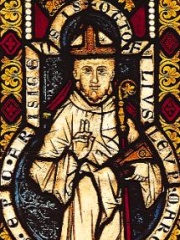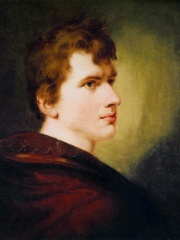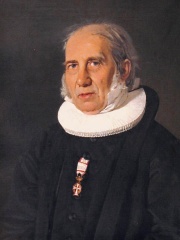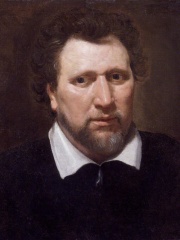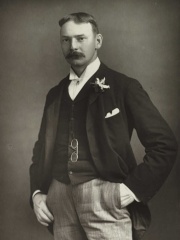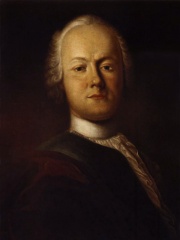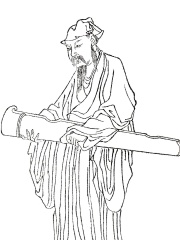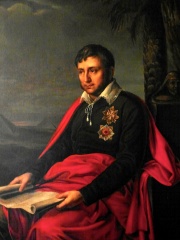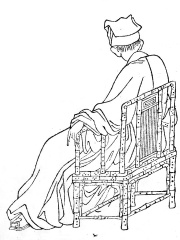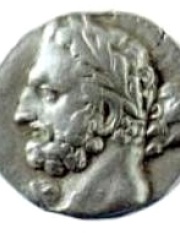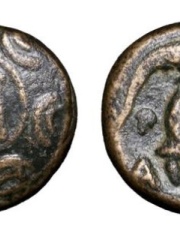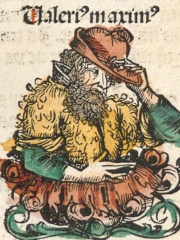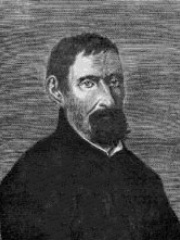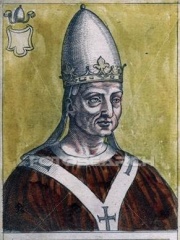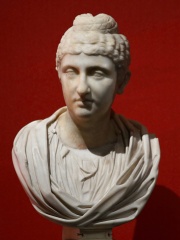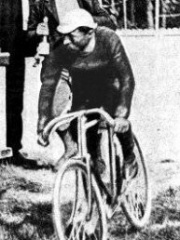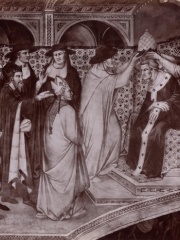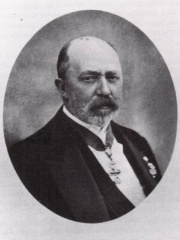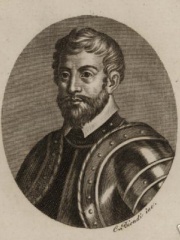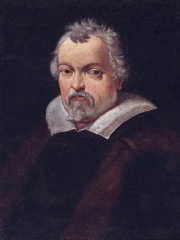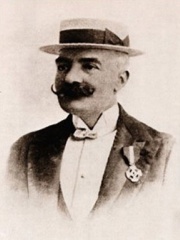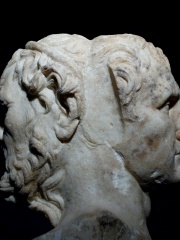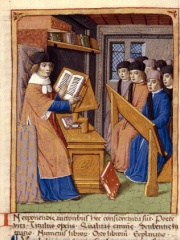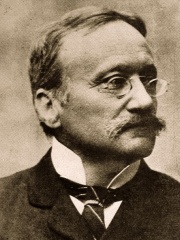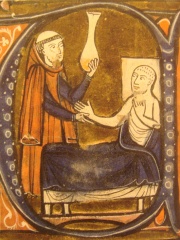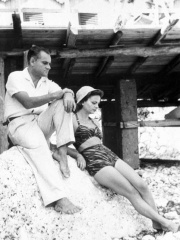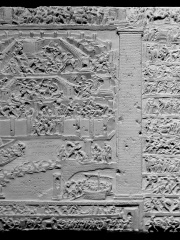Writer
Gnaeus Naevius
275 BC - 201 BC
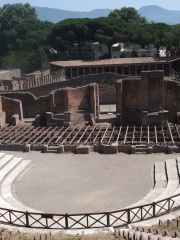
 Gnaeus Naevius
Gnaeus Naevius
Gnaeus Naevius (; c. 270 – c. 201 BC) was a Roman epic poet and dramatist of the Old Latin period. He had a notable literary career at Rome until his satiric comments delivered in comedy angered the Metellus family, one of whom was consul. Read more on Wikipedia
His biography is available in 41 different languages on Wikipedia. Gnaeus Naevius is the 787th most popular writer (up from 909th in 2024), the 979th most popular biography from Italy (up from 1,036th in 2019) and the 71st most popular Italian Writer.
Gnaeus Naevius is most famous for writing the first Latin comedy, "The Rope."
Memorability Metrics
Page views of Gnaeus Naevius by language
Among Writers
Among writers, Gnaeus Naevius ranks 787 out of 7,302. Before him are Otto of Freising, Achim von Arnim, N. F. S. Grundtvig, Ben Jonson, Jerome K. Jerome, and Jun'ichirō Tanizaki. After him are Friedrich Gottlieb Klopstock, Tao Yuanming, Jan Potocki, Edward Bernays, Wang Wei, and Nonnus.
Most Popular Writers in Wikipedia
Go to all RankingsOtto of Freising
1114 - 1158
HPI: 69.72
Rank: 781
Achim von Arnim
1781 - 1831
HPI: 69.71
Rank: 782
N. F. S. Grundtvig
1783 - 1872
HPI: 69.71
Rank: 783
Ben Jonson
1572 - 1637
HPI: 69.70
Rank: 784
Jerome K. Jerome
1859 - 1927
HPI: 69.70
Rank: 785
Jun'ichirō Tanizaki
1886 - 1965
HPI: 69.67
Rank: 786
Gnaeus Naevius
275 BC - 201 BC
HPI: 69.65
Rank: 787
Friedrich Gottlieb Klopstock
1724 - 1803
HPI: 69.65
Rank: 788
Tao Yuanming
365 - 427
HPI: 69.63
Rank: 789
Jan Potocki
1761 - 1815
HPI: 69.63
Rank: 790
Edward Bernays
1891 - 1995
HPI: 69.63
Rank: 791
Wang Wei
699 - 759
HPI: 69.61
Rank: 792
Nonnus
500 - 500
HPI: 69.60
Rank: 793
Contemporaries
Among people born in 275 BC, Gnaeus Naevius ranks 2. Before him is Hamilcar Barca. After him are Demetrius II Aetolicus, and Rhianus. Among people deceased in 201 BC, Gnaeus Naevius ranks 1. After him are Quintus Fabius Pictor, and Gaius Atilius Regulus Serranus.
Others Born in 275 BC
Go to all RankingsHamilcar Barca
MILITARY PERSONNEL
275 BC - 228 BC
HPI: 74.41
Rank: 1
Gnaeus Naevius
WRITER
275 BC - 201 BC
HPI: 69.65
Rank: 2
Demetrius II Aetolicus
POLITICIAN
275 BC - 229 BC
HPI: 66.96
Rank: 3
Rhianus
WRITER
275 BC - 300 BC
HPI: 59.65
Rank: 4
Others Deceased in 201 BC
Go to all RankingsGnaeus Naevius
WRITER
275 BC - 201 BC
HPI: 69.65
Rank: 1
Quintus Fabius Pictor
WRITER
254 BC - 201 BC
HPI: 66.32
Rank: 2
Gaius Atilius Regulus Serranus
POLITICIAN
300 BC - 201 BC
HPI: 63.43
Rank: 3
In Italy
Among people born in Italy, Gnaeus Naevius ranks 979 out of 5,161. Before him are Valerius Maximus (-100), Guarino Guarini (1624), Gian Maria Volonté (1933), Antipope John XVI (1000), Franco Modigliani (1918), and Faustina the Elder (105). After him are Giovanni Angelo Becciu (1948), Maurice Garin (1871), Antipope Paschal III (1110), Robert I, Duke of Parma (1848), Roger de Flor (1267), and Ludovico Carracci (1555).
Others born in Italy
Go to all RankingsValerius Maximus
WRITER
100 BC - 100
HPI: 69.73
Rank: 973
Guarino Guarini
ARCHITECT
1624 - 1683
HPI: 69.70
Rank: 974
Gian Maria Volonté
ACTOR
1933 - 1994
HPI: 69.70
Rank: 975
Antipope John XVI
RELIGIOUS FIGURE
1000 - 1001
HPI: 69.69
Rank: 976
Franco Modigliani
ECONOMIST
1918 - 2003
HPI: 69.67
Rank: 977
Faustina the Elder
COMPANION
105 - 140
HPI: 69.67
Rank: 978
Gnaeus Naevius
WRITER
275 BC - 201 BC
HPI: 69.65
Rank: 979
Giovanni Angelo Becciu
RELIGIOUS FIGURE
1948 - Present
HPI: 69.64
Rank: 980
Maurice Garin
CYCLIST
1871 - 1957
HPI: 69.62
Rank: 981
Antipope Paschal III
RELIGIOUS FIGURE
1110 - 1168
HPI: 69.59
Rank: 982
Robert I, Duke of Parma
POLITICIAN
1848 - 1907
HPI: 69.59
Rank: 983
Roger de Flor
MILITARY PERSONNEL
1267 - 1305
HPI: 69.59
Rank: 984
Ludovico Carracci
PAINTER
1555 - 1619
HPI: 69.58
Rank: 985
Among Writers In Italy
Among writers born in Italy, Gnaeus Naevius ranks 71. Before him are Emilio Salgari (1862), Natalia Ginzburg (1916), Theognis of Megara (-570), Maurus Servius Honoratus (363), Arrigo Boito (1842), and Valerius Maximus (-100). After him are Cesare Pavese (1908), Gerard of Cremona (1114), Elsa Morante (1912), Stesichorus (-630), Ibycus (-600), and Andrea Camilleri (1925).
Emilio Salgari
1862 - 1911
HPI: 70.25
Rank: 65
Natalia Ginzburg
1916 - 1991
HPI: 70.10
Rank: 66
Theognis of Megara
570 BC - 485 BC
HPI: 70.03
Rank: 67
Maurus Servius Honoratus
363 - 301
HPI: 69.97
Rank: 68
Arrigo Boito
1842 - 1918
HPI: 69.79
Rank: 69
Valerius Maximus
100 BC - 100
HPI: 69.73
Rank: 70
Gnaeus Naevius
275 BC - 201 BC
HPI: 69.65
Rank: 71
Cesare Pavese
1908 - 1950
HPI: 69.44
Rank: 72
Gerard of Cremona
1114 - 1187
HPI: 69.39
Rank: 73
Elsa Morante
1912 - 1985
HPI: 69.30
Rank: 74
Stesichorus
630 BC - 555 BC
HPI: 69.23
Rank: 75
Ibycus
600 BC - 600 BC
HPI: 69.19
Rank: 76
Andrea Camilleri
1925 - 2019
HPI: 69.11
Rank: 77
